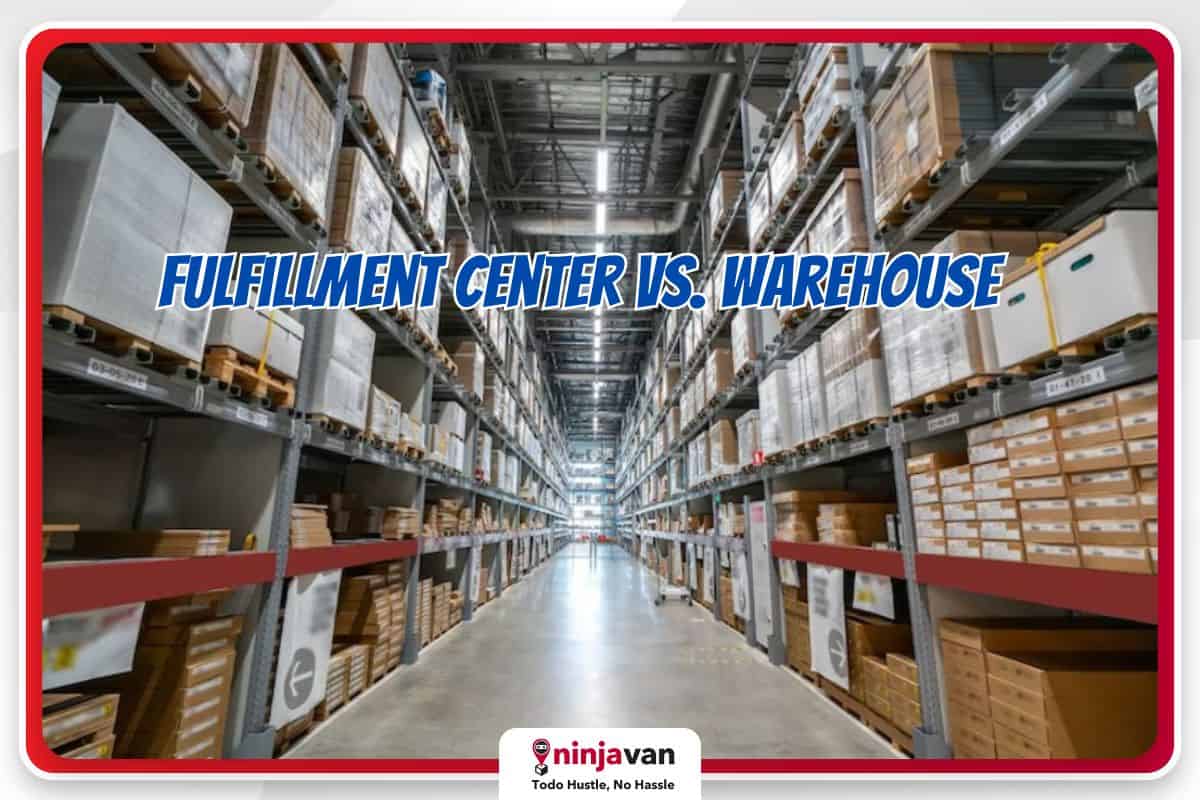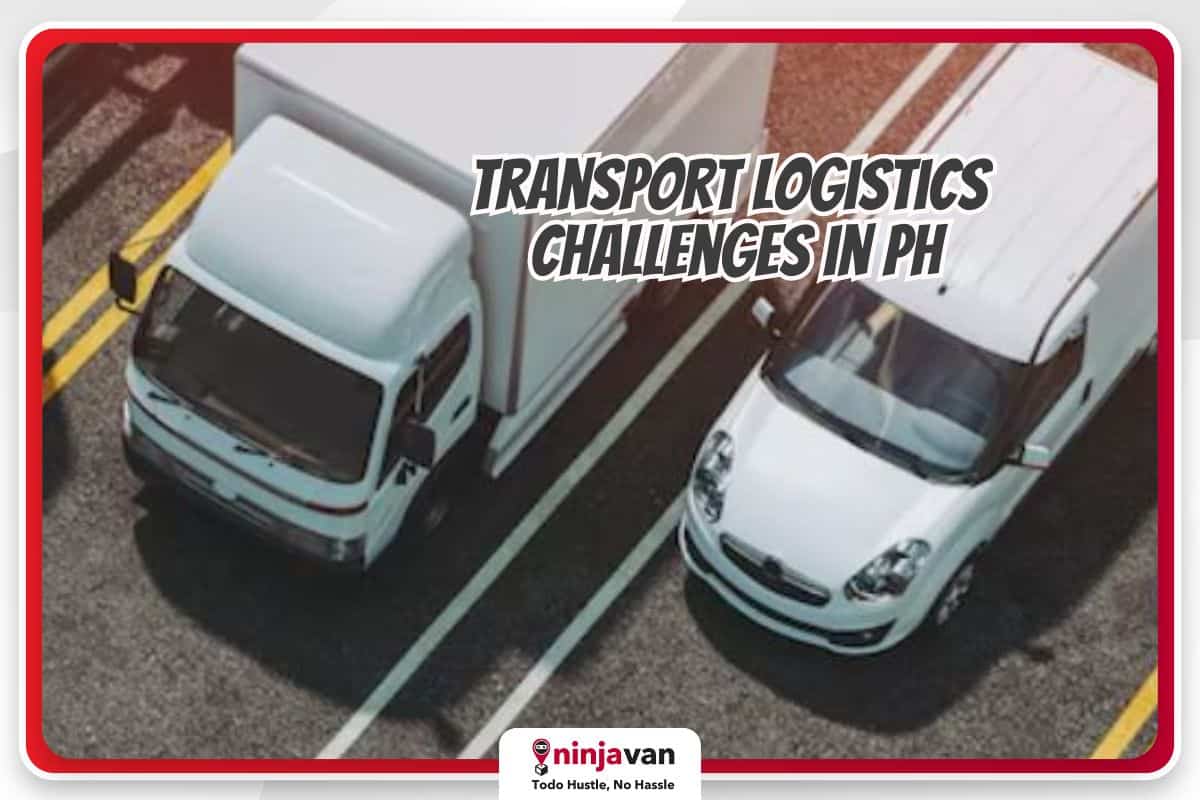The backbone of a successful ecommerce operation often rests on efficient supply chain management.
Given the competitive nature of the industry, getting your goods to your buyers ASAP can spell the difference between a repeat customer vs an unsatisfied buyer who might take their money elsewhere. This is for both the B2C and B2B segments.
One cost-effective strategy to improve customer experience is knowing when to leverage warehouses and fulfillment centers. But understanding the differences between these two types of infrastructure is crucial for small- to medium-sized enterprises (SME’s) to optimize their logistics processes and meet growing consumer demands.
As a business owner, you might find it convenient to use your owned spaces for storage. As your business grows, the limitations of these makeshift arrangements will only hold your business back, compelling the need to search for storage and logistics solutions.
What is a warehouse?
Warehouses serve as the traditional storage hubs for goods. They are storage spaces where products are stocked, awaiting orders for shipment.
Key functions of warehouses can include:
- Inventory storage involves the receipt, verification and safekeeping of goods within the warehouse.
- Inventory organization involves facilitating the transportation and arrangement of goods within the storage facility.
- Inventory management encompasses activities such as order preparation, load consolidation, dispatch and general information processing related to inventory management.
In general, a warehouse’s key function is to serve as infrastructure for storage and safekeeping.
Warehousing solutions can come in various forms, as well, and sizes can vary, ranging from as small as 1,000 square feet to well over 500,000 square feet, catering to the specific needs and preferences of all sorts of industries.
Common types of warehouses
Public warehouse
Public warehouses are shared storage facilities that offer storage space and related services to multiple businesses on a rental basis. Some public warehouses can offer inventory management, order fulfillment and distribution, so costs may vary.
Private warehouse
Private warehouses, on the other hand, are owned and operated by individual companies to exclusively store their own inventory. These facilities provide businesses with complete control over their storage and distribution processes, allowing for customized solutions tailored to specific needs.
Smart or automated (AI) warehouse
Smart or automated warehouses are more modern storage solutions, which leverage cutting-edge technology, such as artificial intelligence (AI), robotics and automation systems, to optimize inventory management and order fulfillment processes.
These automated storage facilities minimize human intervention, enhance operational efficiency and enable real-time tracking and monitoring of inventory movements.
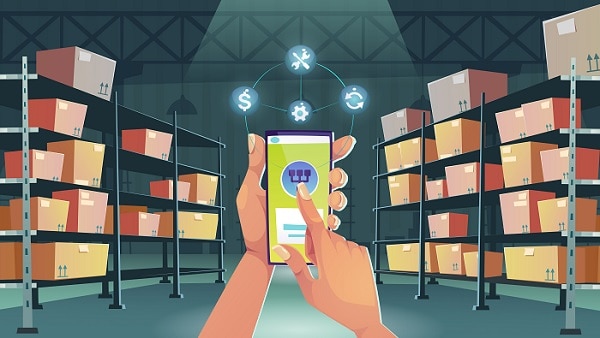
Cold storage or climate-controlled warehouse
Cold storage or climate-controlled warehouses are specifically designed to store perishable goods, sensitive materials or products requiring specific temperature and humidity conditions.
They can preserve the quality and integrity of goods, ensuring your products remain in best condition throughout storage and distribution.
On-demand warehouse
On-demand warehouses offer flexible, short-term storage solutions that can be accessed as needed, typically through a digital platform or mobile app. These facilities cater to businesses requiring temporary storage space during peak seasons, inventory overflow or special projects without the commitment of a long-term lease.
Distribution centers
Distribution centers are strategically located facilities dedicated to receiving, storing and distributing goods to fulfill customer orders efficiently. These hubs are crucial to the efficiency of a supply chain network, enabling rapid order processing, inventory replenishment and order fulfillment across multiple channels.
However distribution centers are different from fulfillment centers.
What is a fulfillment center?
Now, how is a fulfillment center different from a warehouse?
Fulfillment centers, as its name suggests, are dynamic warehousing solutions designed for rapid order completion. Unlike warehouses, they focus on order processing efficiency rather than long-term storage. They’re equipped with advanced inventory management, sorting platforms and streamlined processes.
As an alternative to common warehousing solutions, a fulfillment center is specifically designed for order fulfillment, where goods are sorted, picked, packed and shipped directly to customers upon ordering online.
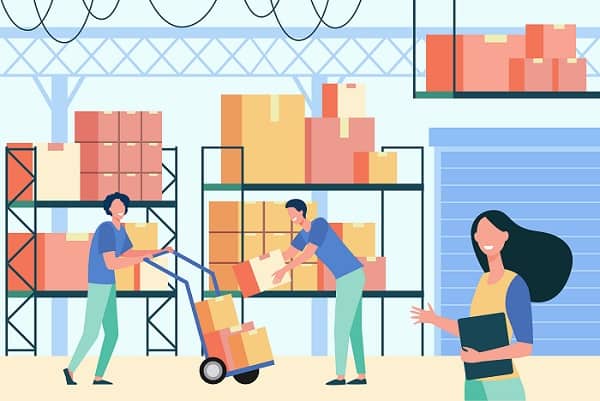
Key functions of a fulfillment center can include:
- Receiving incoming inventory shipments
- Inventory storage and organization
- Order processing and picking
- Packing goods into parcels or packages
- Shipping orders to customers
- Managing returns and exchanges
- Utilizing technology for inventory management
So, when do you need a fulfillment center?
Here are some guide questions to find out if your business needs to outsource to a fulfillment center:
- Is your business experiencing a surge in order volumes that is becoming difficult to manage effectively?
- Are logistical bottlenecks hindering your ability to fulfill orders promptly and efficiently?
- Are you receiving complaints from customers regarding delayed deliveries or fulfillment issues?
With a specialized focus, fulfillment centers provide ecommerce companies with the necessary infrastructure and expertise to streamline operations and meet the evolving demands of their customer base.
Fulfillment centers are typically managed by third-party logistics providers (3PLs), offering comprehensive services ranging from inventory storage to freight transportation, cross-docking and customer support. Here’s an article on How 3PLs can help your ecommerce business grow.
Benefits of a fulfillment center to a business
So, why should you consider partnering with a fulfillment and warehousing provider like Ninja Van? With Ninja Fulfillment, your ecommerce business can enjoy the following advantages:
1. Easy, affordable and reliable picking and packing
Ninja Van allows your business to enjoy lower storage costs while saving on manpower and other operational expenses. Our dedicated team will do the picking and packing of your orders for same-day handover to the courier service.
2. Fast, convenient and timely fulfillment
With optimized delivery routes and a centralized fulfillment network; we provide your business with regular updates on top of complete visibility on inventory movements, warehouse activities and more, helping ensure that your customers get their orders within the SLA.
3. Advanced fulfillment management platforms
Our state-of-the-art logistics and warehousing distribution centers are designed to safeguard your products until they reach your customers’ doorstep.
Ninja Van prides itself on investing in cutting-edge equipment, including DWS (Dimension Weighing and Scanning), automated rollers, conveyors and multipurpose mobile scanners, ensuring the accurate and efficient movement of your inventory.
4. Flexible and customized inventory management solutions
Depending on your ecommerce business needs, Ninja Fulfillment also offers a range of services that can improve the way you operate:
- Standard services include inbound inventory receiving and processing, quality control, storage, periodic stock counting, picking and packing, handover, re-inventorisation of returns
- Value-added services can cover unstuffing, stock counting, kitting and bundling, custom packaging, labeling and relabelling
5. Dependable fulfillment services
With real-time inventory management, full control over order fulfillment and website marketplace integration, you can rely on Ninja Fulfillment for your ecommerce store.
Leverage advanced warehousing and fulfillment solutions for popular platforms like Lazada, Shopee, Shopify, TikTok and more.
Fulfillment center vs warehouse solutions: Which one’s better?
Understanding the difference between a warehouse and fulfillment center is vital for ecommerce businesses aiming to optimize their logistics operations.
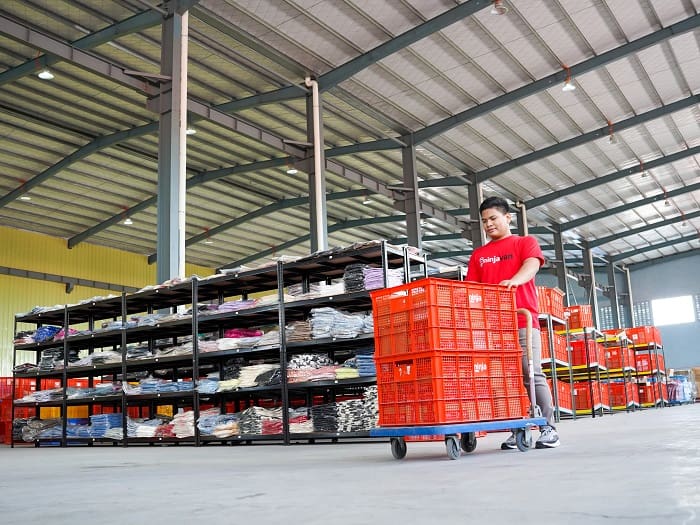
and optimize your ecommerce.
While warehouses focus on storage, fulfillment centers specialize in efficient order completion. Identifying the need for a fulfillment center involves recognizing surging order volumes, logistical challenges and customer complaints about delays.
With Ninja Fulfillment, your business can optimize your inventory management and streamline your fulfillment. Ninja Van is the partner for your ecommerce business’ continuous growth.
For inquiries about Ninja Fulfillment:
- Reach out to Erick Paul Ramos at 0917-7161495
- Send an email to ph-niu-fulfillment@ninjavan.co
- Visit the Ninja Fulfillment website

